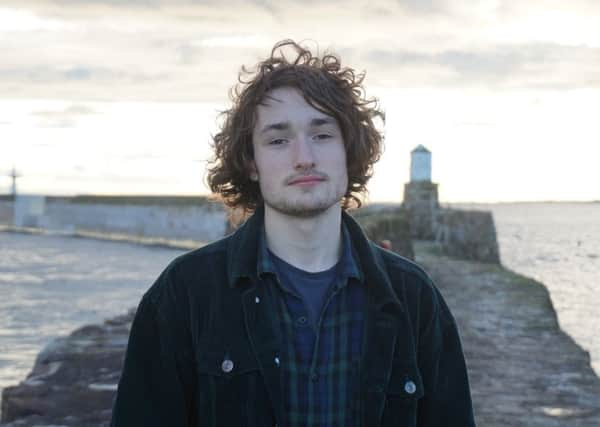Music interview: Jazz pianist Fergus McCreadie on playing the Fringe by the Sea and 'living with the music'


This year has been a landmark one for McCreadie who, at just 21, already had an impressive a clutch of awards under his belt including twice winning the under-17 category of Young Scottish Jazz Musician of the Year and winning Best Instrumentalist at this year’s Scottish Jazz Awards. In April he and his trio released their debut album, Turas, to widespread acclaim, while July saw him graduate with a BMus Hons from the Royal Conservatoire of Scotland.
Turas (Gaelic for journey) combines lyricism, drive and empathetic trio playing, with McCreadie’s compositions subsuming Scottish elements in an utterly organic manner, rather than sounding as if they’d been shoehorned in.
Advertisement
Hide AdWhen I met him in Glasgow’s Café Hula, a stone’s throw from the RCS, shortly after his graduation, he blithely informed me that he had turned 21 that very day. Was he planning a party? Not really, he grinned, he was playing that night at the Blue Arrow, one of Glasgow’s latest jazz venues: “Quite a few friends are playing at it, though, so it should be a laugh.”
McCreadie is one of a new generation of young musicians now making their presence felt on the Scottish jazz scene and beyond, having emerged from the RCS’s jazz course, established in 2009 under its director, saxophonist Tommy Smith. For McCreadie, his four years at the Conservatoire, where he was tutored by pianists Paul Harrison and Tom Gibbs (following earlier teaching by Euan Stevenson), have been vital, in terms of both tuition and, just as importantly, of jamming with fellow students – who include David Bowden and Stephen Henderson, bassist and drummer respectively in his trio.
“I have a job thinking of a gig I’ve done which hasn’t been with RCS alumni or students,” he says. However, his particular music world has been forming since his earliest days, growing up amid the Ochil “Hillfits”. There’s a warmly evocative track on his album titled Hillfoot Glen: “Loving Scottish landscape and trying to evoke it in music definitely comes from being in the Hillfoots.”
His mother listened to a lot of traditional music, and at Dollar Academy, a school famed for its championship pipe band, he was taught piping, although he never played in the competing band. Classical piano grades followed, but it wasn’t until he attended one of the Fife Summer Jazz Courses, run by the influential pianist-pedagogue Richard Michael, that he was introduced to jazz playing. This led on to the creative crucible of the Fife Youth Jazz Orchestra: “Musicians I first met there I’m still playing with today: the musical bonds are really tight.”
It also introduced him to the jazz piano classics of Oscar Peterson and Bill Evans, Chick Corea and ultimately a player he currently regards as his biggest influence, Keith Jarrett. McCreadie was hooked and, entering the Conservatoire, he joined the Tommy Smith Youth Orchestra.
Bowden and Henderson were four years ahead of him at the Conservatoire, but they gelled quickly, initially playing together in other bands, as they still do, then forging their own tight unit. Before recording Turas, the trio holed up with their instruments in a cottage in the Rob Roy country of Balquhidder. “We knew the music for the album quite well, but that really solidified our playing. It’s not just knowing the music, it’s living it, especially in that location, and it really informed how we try to generate these landscapes.”
Advertisement
Hide AdHis immersion in the Glasgow scene rekindled his interest in traditional music and he also found himself listening to contemporary folk bands, particularly Irish-American supergroup The Gloaming – “Hearing them for the first time was like a transformative experience. It’s not that I’m consciously trying to put folk music into my playing, but I know it so well it just comes out naturally.”
Another influence has been the poetry of the late Seamus Heaney. In his North Berwick gig McCreadie may include a piece, Lough Beg, inspired by a Heaney poem, and has performed in the past with an actor reading Heaney’s work, something he’d like to do again.
Advertisement
Hide AdIn the meantime, August sees his trio playing Oslo Jazz Festival, while, nearer home, autumn gigs include Stirling Tolbooth (5 October) and Jazz at St James in Leith (17 November).
At the time of our interview, he was planning to reprise his cottage-in-the-country immersion, this time prior to recording with drummer Graham Costello’s STRATA (another RCS connection). “That’s the way to do it,” he laughs, “living with the music.”